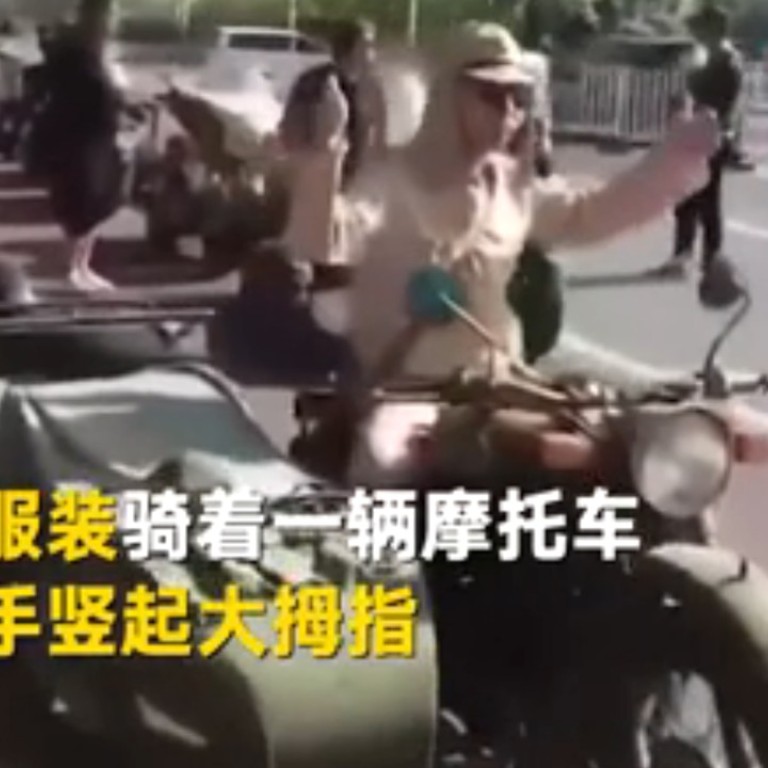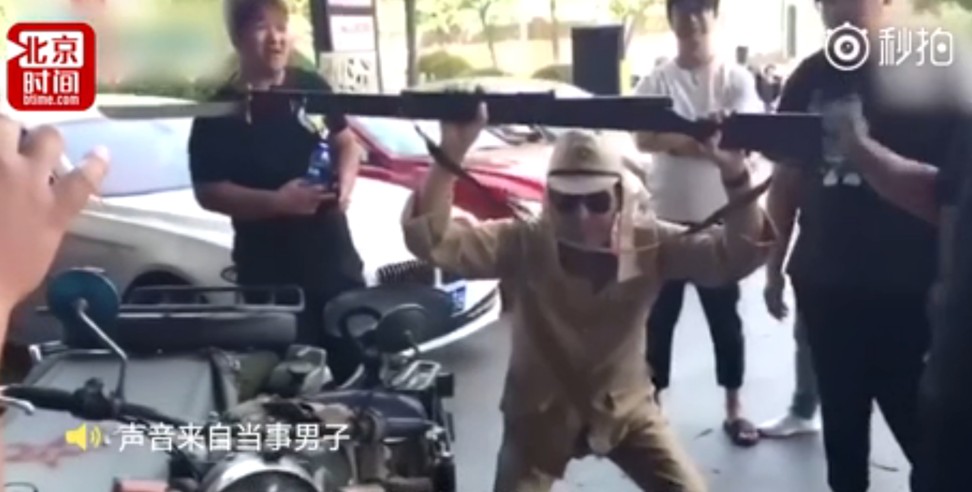
Chinese man who led wedding party dressed as Japanese solider ‘had been filming patriotic video and didn’t have time to change’
Man apologises for ‘misunderstanding’ after his stunt triggers nationalist backlash
A man in northern China has triggered a nationalist backlash after he was pictured leading a wedding motorcade dressed as a second world war Japanese solider – just weeks after a law that would criminalise such actions came into effect.
The man, identified as Liu Bin, has since apologised for his actions and insisted in a videoed apology that he and his friends had been filming a patriotic anti-Japanese series of films to be shared online and did not have time to change before joining the wedding party.
The footage circulated on social media shows the 36-year-old dressed in military fatigues and carrying a rifle, giving the thumbs-up sign as he rides in the front of a fleet of wedding motorcycles in the coastal megacity of Tianjin.
“I was in the military over 10 years ago, and I was also a patriotic youth, so today’s incident was a misunderstanding,” he said in the video apology, published by online news site KNews. “I will completely avoid wearing this type of outfit in public settings in the future.”
Liu also denied accusations that he was a “jingri”, a term for Chinese individuals who feel spiritually Japanese.
The incident was the latest in a string of controversies involving people dressed in Japanese imperial uniforms, which triggers historical sensitivities over the Japanese invasion and occupation of China between 1937 and 1945 in which millions of people died.
In a subsequent interview with Upstream News he repeated the apology, saying: “I deserve to be yelled at [by web users]; it was self-inflicted.
“My actions did hurt the people’s feelings. But I am not a ‘jingri’, since I love the country and hate acts of invasion.”
A new law to honour China’s “heroes and martyrs” came into force at the start of the month and explicitly targets “acts to glorify invasions”.
The new legislation, which seeks to promote patriotic and socialist core values, led to its first lawsuit last week when a man was accused of sharing misinformation about a firefighter who died on the job.
It also shut down the most popular “rage comic” platform Baozou Manhua for insulting a revolutionary soldier.
The Chinese authorities have increasingly fought back against “historical nihilism”, or political thoughts the state feels distort the ruling Communist Party’s version of history.
The process also involves patriotic education in schools and laws to protect the national flag and anthem.
Even before the new law came into force people have fallen foul of the authorities for stunts such as Liu’s.
In February two men were detained for 15 days for dressing in Japanese wartime uniforms near a memorial to the hundreds of thousands of civilians killed by imperial forces in the eastern city of Nanjing in 1937.
Police described them as having “severely blasphemed against national sentiment and caused an adverse social impact”.
Even Chinese Foreign Minister Wang Yi weighed in, calling the two men the “scum among the Chinese people”.
There was no word on whether the police would take any action in Liu’s case.


